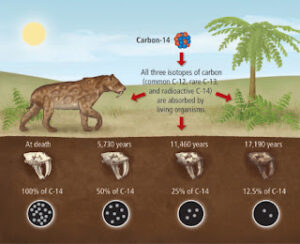Posts Tagged ‘atom’
Harvard’s Carbon-Dating Scandal
Background: In one sense Carbon–14 dating is a forensic method of determining the age of organic matter by measuring the decay of the Carbon–14 atom. In another sense, Carbon-Dating is a method for unscrupulous professors to groom unsuspecting Carbon-14 atoms for personal gratification. In either case it’s a ready way for professors (be they studious or depraved) to gain access to, and fraternize with, Carbon-14 atoms.

This is the only kind of “Carbon Dating” professors should be engaging in. Atomic Tinder is shameful.
Dateline: Cambridge, MA — Harvard University’s Archaeological Board of Ethics has accused some tenured professors of engaging in unwelcomed Carbon-Dating, and that this so-called “Carbon-Dating” lacks proper supervision or safeguarding chaperones. In their defense, the Union of Concerned Scientists maintain that any Carbon-Dating has been completely consensual and absolutely necessary for carrying on their work in the field of dating antiquities. The board also accused the professors of dating antiquities without their consent, but that’s another story for another Age.
.
More specifically the board has charged Prof. Adam Askew with some questionable Carbon-Dating practices. Professor Askew admits he’s dated hundreds, perhaps thousands of Carbon-14 atoms, but that in each case all his Carbon-Dating has been entirely consensual for both himself and the particle of matter in question – even going so far as to get permission from the molecule it was attached to. As expected the reaction of the atom community has been positive, negative and even neutral on the matter – isn’t that just like an atom.
One Carbon-14 atom declared, “This whole Carbon-Dating thing just doesn’t matter.” But then later admitted, “Well, maybe that’s just my anti-matter talking.” Several board members warned that humans engaging in any kind of merging or fusion with a Carbon-14 atom risk nuclear catastrophe in the form of one helluva a Big Bang, should they somehow manage to merge.
Professor Adam Askew admits that when he first looked at a Carbon-14 atom under an electron microscope it was, “love at first sight. Adam loved atom. And my affection is limited to the carbon atom and only the Carbon-14 isotope specifically. I could care less about sodium, strontium or antimony. Although I will admit, Cesium-137 looks quite fetching under the e-scope. You can read all about this in my book Up and Atom: Successfully Dating with Carbon-14.“
Pros and Cons of Carbon-14 Dating
- It’s hard to tell if a particular Carbon-14 atom is male or female. Sometimes you find out after it’s too late.
- Carbon-14 dating can determine the date of a 5000 year-old mummy within 3 weeks
- It’s a cheap date: Carbon-14’s eat nothing and its favorite movie is Honey I Shrunk the Kids
- They decay very slowly and generally have a mid-life crisis only about once every 22,000 years.
Some say this basic building block of life lacks soul and shouldn’t have protections on how they’re treated, so if some academic-type chooses to get his rocks off with an inorganic, rocky mineral that’s his business. It’s not like minerals are woke or anything. In any event there have been some shenanigans going on in Harvard’s labs. Electron microscopes have been used indecently in ogling Carbon-14 atoms in the buff – clothed only in a scanty shell of electrons. Heck, some Carbon-14 atoms have had their shells knocked-up to Carbon-16 atoms. When professors were asked how this mysterious electron augmentation occurred they sheepishly said, “Hey…isotopes happen.”
“This is plain wrong,” board member Prudence Goodwater inveighed. “A Carbon-14 atom cannot give consent until it’s at least Carbon-18.”
Scientists concerned about the Union of Concerned Scientists say this Carbon-Dating scandal has given the entire scientific community a black eye. Well it is sooty carbon, so what else would you expect. Maybe this story is true or maybe it’s just Harvard lampooning us. Meanwhile, be happy that even though you can never have this 3 minutes back, you invested it very wisely. I mean I hope it generated plenty of interest for you.

